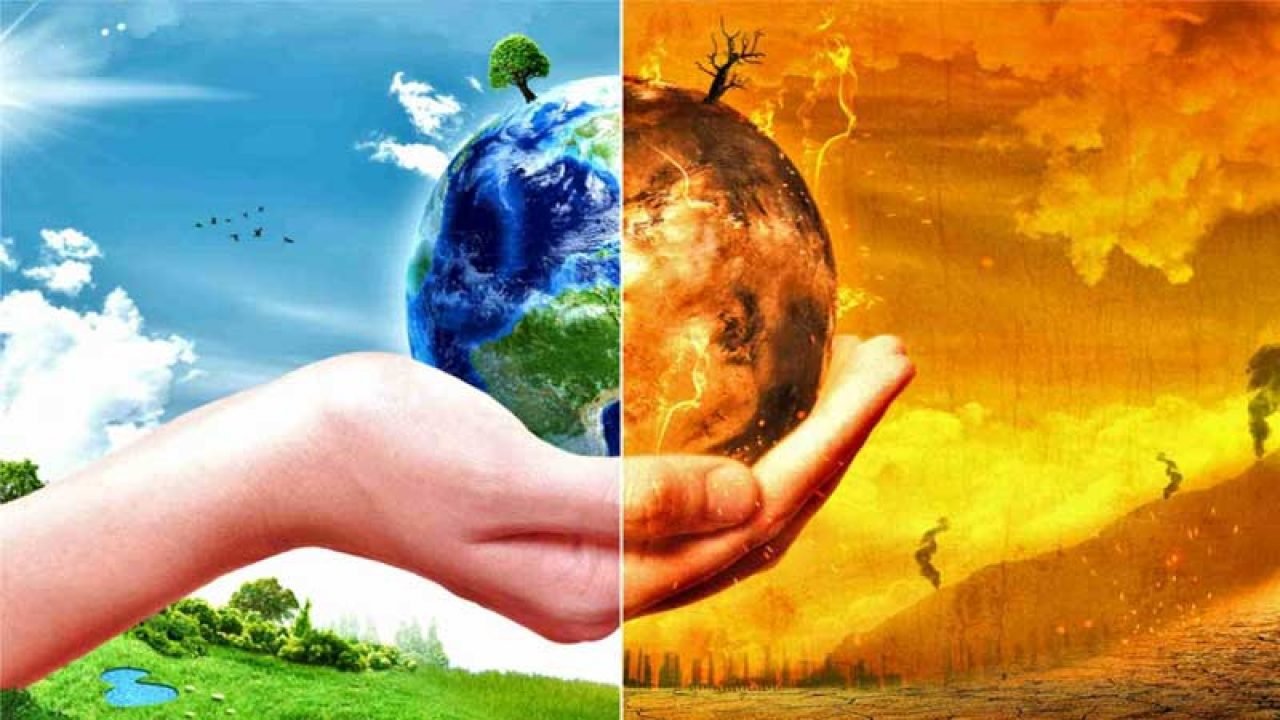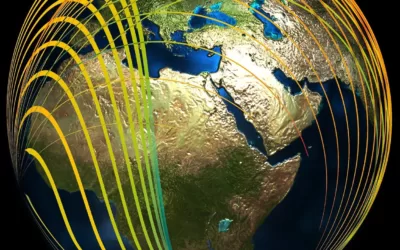This is the main privacy policy for www.aiartgurus.com, AI Art Gurus, and for certain services provided through the websites
At www.aiartgurus.com we collect different types of information about our users for four main reasons:
- To provide personalised services unique to individual users.
- To help us to monitor and improve the services we offer.
- To sell advertising space on the site. This helps us to keep the site free of charge.
- With user consent, to market services to individuals’ users
Please read these at the time you register or subscribe for these services on this sites.
www.aiartgurus.com recognizes the importance of maintaining the privacy of every user who visits our website/mobile applications. We value your privacy and appreciate your trust in us. We are committed to be transparent about the data we collect about you, how it is used and with whom it is shared.
This Privacy Policy applies when you use/visit our website or mobile applications
By visiting and/or using our website/mobile applications, you agree to this Privacy Policy. We strongly recommend that you read this Privacy Policy so that you understand our approach towards the use of your personal data.
www.aiartgurus.com reserves the right to modify this privacy statement at any time.
Information we collect
We collect information directly from user (s), from third-parties and automatically through our website/mobile applications.
Registration for the services may require that you supply certain personal information such as name, email address and demographic information (IP address etc) to register.
We collect limited information about your computer’s connection to the Internet, including your IP address, when you visit our website. Your IP address does not identify you personally. We also collect and may store information that your computers or mobile devices provide to us in connection with your use of our website/mobile applications such as your browser type, type of computer or mobile device, browser language, IP address, mobile carrier, unique device identifier, location, requested and referring URLs. We also receive information when you view content on or otherwise interact with our website/mobile applications, even if you have not created an account. We use this information to deliver our web pages to you upon request, to tailor our site to the interests of our users, to measure traffic on the website. This information may also be used by our advertisers/third party companies to personalize content, ads etc.
How We Collect Information
We collect information directly from you when you register with us.
- We collect information (whether you are registered or not registered with us) when you browse our sites/apps, open or respond to an email from us (promotional or informational)
- When you post a comment on our website or raise a query/question to us through our contact us form.
- We collect information from you when you register with us by linking your social media or third party accounts. By doing this, you are authorizing them to share with us certain information from such accounts, and authorizing us to collect, store, and use this in accordance with this Privacy Policy.
- We collect information from you using third party tools, browser cookies and web beacons in order to improve user experience.
- Device Information: We may collect non-personal information about the computer, mobile device or other device you use to access the service, such as IP address, geo-location information, unique device identifiers, browser type, browser language and other information for the purpose of providing customized information on the browser.
- Location Information: Our mobile applications and website may capture your current location if you choose to enable GPS feature in the app or browser.
Cookies Policy, pixels and Tracking
Cookies are small text files which contain a small amount of information that is downloaded to your computer or mobile device when you visit a website. When you visit the website again, or visit partner website which recognises that cookie, your device is able to communicate with our website.
We use Cookies to help you efficiently browse our website and to save your time by not having to re-enter your details/preferences each time you visit. Cookies allow us to provide you with information and show you contents relevant to you. We also use Cookies to analyse how our customers interact with our website so we can improve the customer journey.
You can choose to accept or decline cookies in your browser settings. Most web browsers automatically accept cookies, but you can usually modify your browser setting to reject cookies if you wish. You may find more help about managing cookies in your browser: Chrome, Internet Explorer, Mozilla Firefox & Safari. This may prevent you from having complete website experience by affecting the access to some of the links, services or features. Information collected by cookies and web beacons is not personally identifiable.
Google Analytics: Google Analytics is a web analytics service offered by Google that tracks and reports website traffic. Google uses the data collected to track and monitor the use of our Service. This data is shared with other Google services. Google may use the collected data to contextualize and personalize the ads of its own advertising network.
You can opt-out of having made your activity on the service available to Google Analytics by installing the Google Analytics opt-out browser add-on. The add-on prevents the Google Analytics JavaScript (ga.js, analytics.js, and dc.js) from sharing information with Google Analytics about visits activity.
Link to other Sites: Our Service may contain links to other sites that are not operated by us. If you click on a third party link, you will be directed to that third party’s site. We strongly advise you to review the Privacy Policy of every website you visit.
We have no control over and assume no responsibility for the content, privacy policies or practices of any third party site or service.
How We Use the Information
- To Provide and Manage the Services You Request:
This includes, for example, processing your subscription, sending you electronic newsletters, or enabling you to participate in the features provided by the Services. It also includes providing personalized content and recommendations to you, including by email. Through such features, we are able to bring you information and content tailored to your individual interests and needs. - To Reach You:
We may periodically contact you with offers and information about the Services and our affiliates, including in connection with your accounts, online surveys, legal notices, news stories, new features that you are entitled to access, and other important information. You may opt out of receiving commercial email messages from us by following the instructions contained in those email messages. - To Customise Advertising:
We may use your information to facilitate the delivery of targeted ads, promotions, and offers to you, on behalf of ourselves and advertisers, on and off the Services. We may provide you with personalized services, such as recommendations on our website, applications and in direct marketing and tailored advertising. This includes where we use cookies or similar technologies in relation to the devices you use, for example to make some of the adverts you see more relevant to you - Understand Our Readers and Users:
The Services conduct research on our user’s demographics, interests and behaviour based on the information we collect. We do this to better understand and serve our users, and to improve our products and services. - To Protect the Rights of the Services and others:
We may use your personal information as we believe is necessary or appropriate to protect, enforce, or defend the legal rights, privacy, safety, or property of the Services, its employees or agents, or other users and to comply with applicable law. - Consent:
We may otherwise use your information with your consent or at your direction.
How We Share Your Information
The following provides information about entities with which we may share information. Our practices vary depending on the type of information.
- Logging In Through Social Media Services:
If you log into the Services with a social media service or if you connect a social media account with the Services, we may share your information with that social media service. The social media service’s use of the shared information will be governed by the social media service’s privacy policy and your social media account settings. If you do not want your information to be shared in this way, do not connect your social media service account with your Services. - Business Partners:
We may also share your information with business partners to provide you with services that you request. - Service Providers:
We may share information with vendors providing contractual services to us, such as hosting vendors, advertising service providers, and list managers. We also may share your information, including your payment information, as appropriate to process your payments for the Services or complete a transaction. - Other Parties When Required by Law or As Necessary to Protect Our Users and Services:
We may share your personal information as we believe is necessary or appropriate to protect, enforce, or defend the legal rights, privacy, safety, or property of the Services, our employees or agents or users or to comply with applicable law or legal process, including responding to requests from public and government authorities. - Affiliates:
We may share information within our family of affiliated companies and business associates. - Third Parties that Provide Content, Advertising or Functionality:
When you use our Services, third parties may collect or receive certain information about you and/or your use of Services (e.g., hashed data, clickstream information, browser type, time and date, information about your interactions with advertisements and other content), including through the use of cookies, beacons, mobile ad identifiers, and similar technologies, in order to provide content, advertising, or functionality or to measure and analyse ad performance, on our Services or other websites or platforms. This information may be combined with information collected across different websites, online services, and other linked or associated devices. These third parties may use your information to improve their own services and consistent with their own privacy policies. - Other Parties in Connection With a Corporate Transaction:
We reserve the right to transfer any information we have about you in the event that we sell or transfer all or a portion of our business or assets to a third party, such as in the event of a merger, acquisition, or in connection with a bankruptcy reorganization. - Otherwise With Your Consent or At Your Direction:
In addition to the sharing described in this Privacy Policy, we may share information about you with third parties whenever you consent to or direct such sharing. - We also may share other information with third parties in a manner that does not identify particular users, including, for example, aggregated data about how users are using our Services.
- Links to Third-Party Sites:
Our Services may link to third-party websites and services that are outside our control. We are not responsible for the security or privacy of any information collected by other websites or other services. You should exercise caution, and review the privacy statements applicable to the third-party websites and services you use.
Transfer of Personal Data
Your information, including Personal Data, may be transferred to and maintained on computers located outside of your state, province, country or other governmental jurisdiction where the data protection laws may differ than those from your jurisdiction. We maintain servers around the world and your information may be processed on servers located outside of the country. Please note that the data, including personal data will be shared with the host of this website and it may change around the globe due to our hosting subscription with them. Your consent to this Privacy Policy followed by your submission of such information represents your agreement to that transfer/sharing of data. We will take all steps reasonably necessary to ensure that your data is treated securely and in accordance with this Privacy Policy and no transfer of your personal data will take place to any organization or a country unless there are adequate controls in place including the security of your data and other personal information.
Children’s Personal Data
We do not aim any of our products or services directly at children under the age of 16 and we do not knowingly collect personal data about children under 16. Some of our services may have a higher age restriction and this will be shown at the point of registration. If you are a minor i.e. under the age of 16 years, you may use our products or services only if the consent is provided by the holder of parental responsibility over you
How Long We Keep Your Personal Data
We retain your information for as long as it is necessary to provide you with the service so that we can fulfil our contractual obligations and rights in relation to the information involved. Where we do not need your information in order to provide the service to you, we retain it only as long as we have a legitimate business purpose in keeping such data or where we are subject to a legal obligation to retain the data. We will also retain your data if necessary for the establishment, exercise or defence of legal claims. For example, we may need to use it to answer your queries about a product or service and as a result may keep personal data while you are still using our product or services. We may also need to keep your personal data for accounting purposes, for example, where you have bought a subscription. If we no longer need your data, we will delete it or make it anonymous by removing all details that identify you. If we have asked for your permission to process your personal data and we have no other lawful grounds to continue with that processing, and you withdraw your permission, we will delete your personal data.
Access to Personal Information
You may access or modify your personal information by signing into account. We will not modify the information provided by you. However, you must update your personal information as soon as such changes are necessitated
Upon your request, we will close your account and remove your personal information as soon as reasonably possible, based on your account activity and in accordance with applicable law(s). However, we will retain the required personal information from closed accounts to comply with law, avoid/check illegal and/or potentially prohibited activities and to enforce user agreements; comply with any court judgment / decree / order / directive / legal and government authority /applicable law; investigate potential violations or applicable national and international laws; investigate deliberate damage to the website/services or its legitimate operation; detect, prevent, or otherwise address security and/or technical issues; safeguard the rights, property or safety of the company and/or its directors, employees and the general public at large; respond to claims of third parties; and take such other actions as may be permitted by law.
Your Rights Regarding the Personal Information We Possess About You
If you would like to have a copy of the personal data we hold on you or if you think that we hold incorrect personal data about you, please write at info@aiartgurus.com. We will deal with requests for the copies of your personal data or for correction of your personal data within four weeks’ time. If your request is complicated or if you have made a large number of requests, it may take us little longer. We will let you know if we need longer than four weeks to respond. You will not have to pay a fee to obtain a copy of your personal data (or to exercise any of the other rights). However, we may charge a reasonable fee if your request is clearly unfounded, repetitive or excessive.
- Where you have provided us with consent to use your personal data, you can withdraw this at any time.
- Where applicable, you may also have a right to receive a machine-readable copy of your personal data.
- You also have the right to ask us to delete your personal data or restrict how it is used. There may be exceptions to the right to erasure for specific legal reasons which, if applicable, we will set out for you in response to your request. Where applicable, you have the right to object to processing of your personal data for certain purposes.
- You have the right to have data which we process based on your consent or in fulfilment of a contract automatically delivered to yourself or to a third party in a standard machine-readable format. If you require the direct transfer of data to another responsible party, this will only be done to the extent technically feasible.
If we decide to change our Privacy Policy we will post the changes here. If the changes are significant, we may also choose to email all our registered users with the new details. If required by law, we will get your permission or give you the opportunity to opt out of any new use of your data.
Deleting Your Information
You may submit a request to access or delete the information we have collected about you by sending your request to us at info@aiartgurus.com. We will respond to your request consisting with applicable law and subject to proper verification.
Reach out to us
For any complaint related to our services or content of the website the aggrieved person may raise the query/complaint within a period of 7 (seven) days from the date of first publication to the email id mentioned herein:
Email:
info@aiartgurus.com






0 Comments